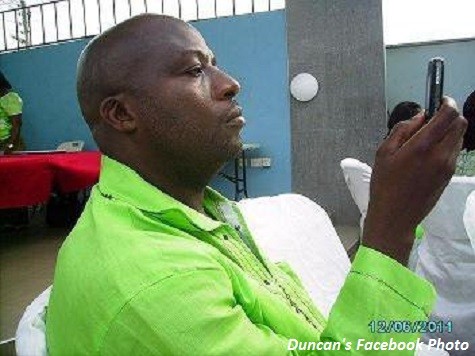
HOUSTON, Texas — Following the death of Thomas Eric Duncan, the Liberian man who brought Ebola to the U.S., Texas Health Presbyterian Hospital received harsh criticism from some. Reverend Jesse Jackson and Commissioner John Wiley Price asserted that Duncan was sent home after his first visit to the hospital because he was black and he did not have health insurance. But on Thursday, Texas Health Presbyterian released a statement defending the hospital’s staff and treatment of Duncan.
The hospital said, “We’d like to correct some misconceptions that have been reported about Mr. Duncan’s first visit. Our care team provided Mr. Duncan with the same high level of attention and care that would be given any patient, regardless of nationality or ability to pay for care. In this case that included a four-hour evaluation and numerous tests. We have a long history of treating a multicultural community in this area.”
Price and Jackson both promoted the referenced “misconceptions.”
Referring to Duncan’s first visit to Texas Health Presbyterian, Price said, “It is historical what has happened in this community. If a person who looks like me shows up without any insurance, they don’t get the same treatment.” Reverend Jesse Jackson parroted this assertion, saying, “Whether you are white in Atlanta or whether you are white in Nebraska or black in Dallas, we know there’s different treatment among blacks in this country.”
The hospital’s recent statement additionally addressed other complaints that Duncan received “unfair” treatment. Duncan’s nephew, for instance, publicly pointed out that five other Ebola patients treated in the U.S. were either cured of the virus or are in the process of being cured.
“In spite of the intensive care he was receiving, his heart stopped, the hospital said in its statement. “Early in his hospital stay, Mr. Duncan had expressed his wishes to his attending physician that the care team should not perform chest compressions, defibrillation or cardioversion to prolong his life. … The drug ZMapp was not administered to Mr Duncan because it was not available. According to the CDC and the drug manufacturer, it has not been available since August 12, 2014. Mr. Duncan did not receive the same type of serum transfusion as the patient in Nebraska because his blood type was not compatible with the serum donors.”
The hospital maintains that its staff did a phenomenal job caring for Duncan, given the specific circumstances.
“Mr. Duncan’s physicians treated him with the most appropriate and available medical interventions, including the investigative antiviral drug Brincidofovir, the statement continued. “After consulting with experts across the country, the CDC, and the FDA, the investigative drug was administered as soon as his physicians determined that his condition warranted it, and as soon as it could be obtained. Mr. Duncan was the first Ebola patient to receive this drug.
“A team of more than 50 people cared for him in a professional and compassionate manner. An entire 24-bed intensive care unit was secured and dedicated to Mr. Duncan’s care.”
The hospital added that its community “grieve[s] the loss of Mr. Duncan.”
Amid Duncan’s death, President Obama’s Department of Homeland Security announced “enhanced screening measures” at airports to prevent the spread of Ebola in the United States. It is unclear, however, what exactly is “enhanced” about the new standards, which only include officials taking the temperatures of travelers, asking targeted questions, and the collecting contact information.
Ebola symptoms may take up to 21 days to appear after an individual becomes infected with the virus. Given this fact, the new screening methods offer no way to prevent individuals with Ebola, but whom are not showing symptoms, from coming to the United States.
Follow Kristin on Twitter @KristinBTate.

COMMENTS
Please let us know if you're having issues with commenting.